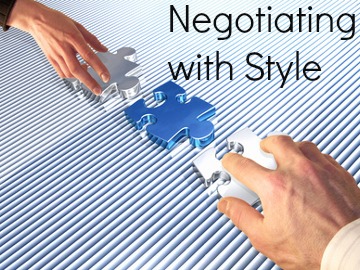How to deal with fast-paced negotiations.
 Friday, May 9, 2014 at 2:07PM
Friday, May 9, 2014 at 2:07PM Fast-paced negotiations need agility not speed.
By Stephen Kozicki
There is more to life than simply increasing its speed.
Mahatma Gandhi
I have just returned from projects in Malaysia and Singapore. The region is fast paced, chaotic, and full of opportunities and pitfalls. When dealing with these opportunities and pitfalls I am surprised with how agile successful people and companies are.
Obviously in KL, the news topic was still the missing flight MH 370. There was much discussion around the slow response to the missing plane. Also around the multiple airline officials and government minister’s hasty responses.
Hasty responses often occur in critical negotiations. As the pace of the negotiation increases, there is an increasing danger of a hasty response instead of an agile response.
Successful management teams must become more sophisticated in their negotiations with key accounts. Management teams need to rethink and adapt their approaches for each major customer. Critical negotiations are a great place to learn agility over speed. Agility creates value and hasty responses descend very quickly into price discussions.
The most powerful method we use to avoid hasty responses in live negotiations is preparing questions. Questions give you control over a fast-paced encounter and they allow you to manage the emotional responses to different approaches. The major benefit of questions is they prevent you making quick statements to defend your position. They also make you prepare better for negotiations with key accounts, you learn to look for real interests and not become blindsided by positions that people take.
Some of the best persuaders – salesmen, negotiators and psychiatrists – persuade with questions rather than statements. The power of questions to generate actions and commitment is well displayed in John Whitmore’s book Coaching for Performance. The only question to avoid is Why? During a negotiation this will produce only a defensive response because the other person sees it as a ‘blame’ question. Few people will answer this question truthfully and it often damages the rapport of a negotiation. Other ways to ask the why question are: what are your reasons for that? or how did you decide to do that? Some well know research in negotiation conducted many years ago showed skilled negotiators used questions twice as often as average negotiators.
To be agile in fast-paced negotiations, prepare good questions and you will avoid hasty responses that will lower your prices.
For unbiased, practical advice when planning for your next negotiation, contact us on +61 (02) 9450 1040 or Stephen@gordianbusiness.com.au. Please share any comments you have and subscribe to our blog at the top right of the page.










